How brilliant user-centered design can impact the economic prosperity of our country
For some of us, the idea of a public sector job can conjure up images of officious, slow-paced formal working environments. But at the Department of International Trade things are a little different.
As one of the newest departments in Whitehall (founded in 2016) the Digital, Data and Technology team builds products in a fast-paced environment in the main free from constraints of having to work with legacy tech.
The leadership team have expertise in agile methodology, flexible working, job shares, and remote working, and are dedicated to maintaining a culture more in line with a startup than a government department.
When we asked their team what they liked about working at the Department of International Trade (DIT), the culture and the work environment were cited, but it’s the scale of the products and the impact they can have that was the most common answer. Contributing towards projects that can positively impact the economy, as well as thousands of businesses around the world, make this a public sector job which can deliver high levels of job satisfaction and some unique opportunities for career development.
We take a look at what impact the forward-thinking principles behind the culture at DIT have on the careers of the people that work there.
A diverse, inclusive, user-centric agile culture
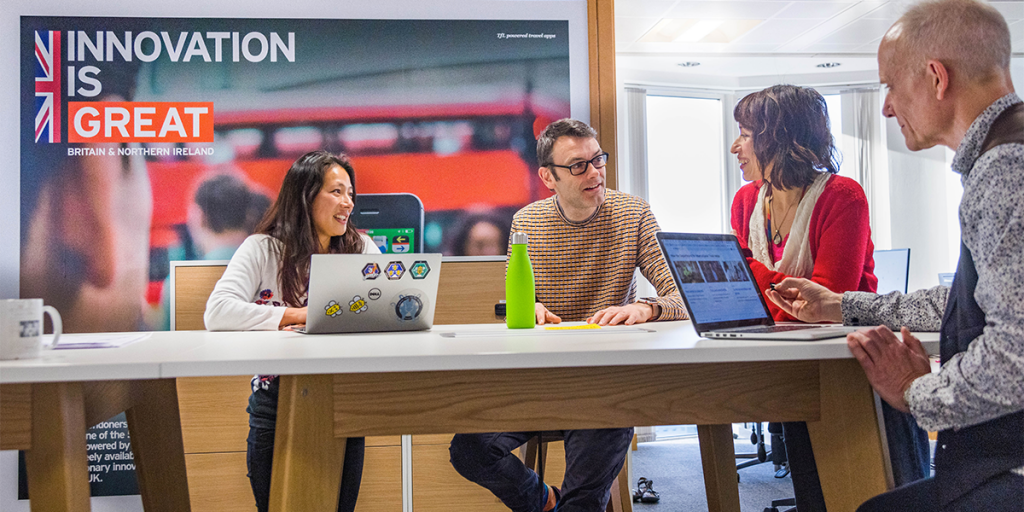
The Digital, Data and Technology (DDaT) team at DIT is made up of 200 specialists from across development, design, content, product and delivery. The teams work together using agile principles to solve problems and build products for external users, as well as supporting the 3,000 staff that make up the rest of DIT around the globe. As a new government department, many of their products were created recently and from the ground up, like the platform great.gov.uk which helps business and investors navigate the global trading environment, and Data Hub, their self-built in-house CRM which allows DIT staff around the world to access the information they need on a company wherever they are. Their new department status also means they benefit from a cloud-hosted micro-service architecture, allowing them the capability to be truly agile (for a more detailed view of their approach to agile check out this write-up at their blog).
In practice, this agile approach means that each team is trusted to carry out their job effectively. As a government department interacting with the international trade industry, this means paying close attention to the needs of users, to produce the most successful outcomes. As Head of Digital Delivery Kai puts it “the culture encourages teams to take total ownership and be the CEOs of their services.” This is a good example of a company culture that has a positive impact on the job satisfaction of the team. In a recent survey of staff 90% of the DDaT team said they felt they were trusted to carry out their job effectively, and were encouraged to challenge the status quo.
The DDaT team at DIT are fully signed up to the government’s wider national agenda to set the standard in being a diverse employer. The working practices mentioned above – job sharing, flexible working, remote working – play a key role in defining the priorities of the culture. These are principles built on the belief that they will not only open up the DIT as an inviting workplace for a wider range of people, but that in turn the diversity of opinion represented in the department will produce better products which are truly reflective of the people they’re building them for, and will put them at the forefront of developing accessible services that everyone can use. The commitment to inclusivity also allows for greater potential for personal development as team members learn from each other.
Chief Data Officer Sian has been a supporter of flexible working within the civil service since its introduction in 2004 (she even published her top tips for teams working flexibly for the first time at the beginning of the coronavirus-related restrictions in late February).
“We will only get good products and services if we have that diversity involved in building them.”
Sian, Chief Data Officer
Ed, Director of the DDaT team explains the importance of this approach: “What we can do is help build high functioning teams, bringing together excellence from all walks of life to solve complex problems – problems that are faced by our businesses and citizens. Without building in diversity in our own teams, we will only solve problems for those in our own image. This isn’t about people creatively representing the views of others but recognising that people are their most creative when they can be their most creative self.”
He is also honest when asked about the steps still required to create the team they want: “We are still early in this journey, but we are really pushing. The department as a whole has made this a real focus, and achieved 30 in this year’s Stonewall inclusivity index. But the first steps are recognising where we are failing, what our barriers to success are, where we want to get to and what good looks like.”
“Before joining the Civil Service in 2007, I worked as a software developer in various private sector companies. The work in our team here at DIT is highly collaborative. I like our culture of exchange and support, and the variety of people from all around the world bringing their own perspective. Technology moves all the time and I get constant opportunities to learn. In parallel, I feel the impact of what I’m developing. Our work potentially affects businesses worldwide.”
Luisella, Software Engineer
Large-scale projects with purpose
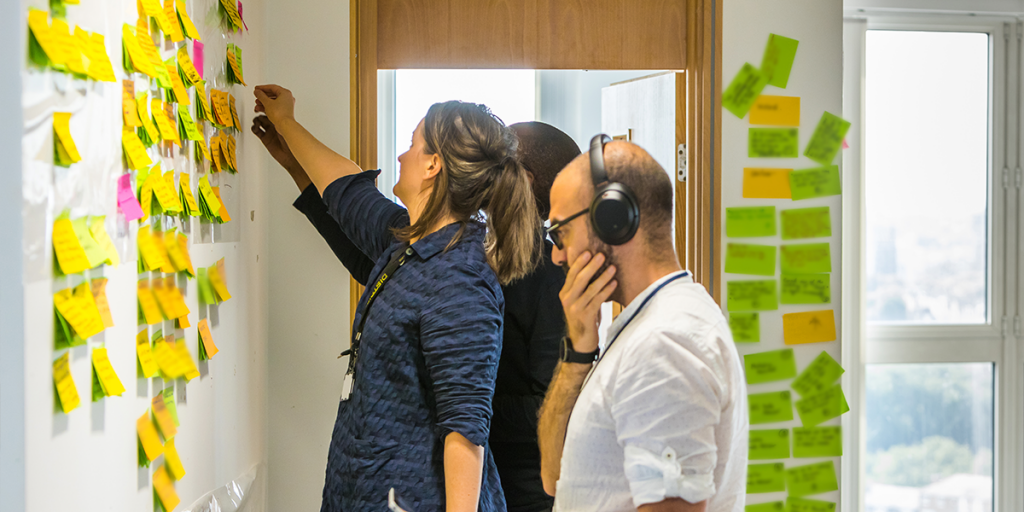
Building a positive culture confidently running on agile principles helps the DIT to meet its aims – to help users navigate the global trading environment. The projects that the DDaT teams work on are focused on designing, developing and maintaining digital services and data tools that enable UK businesses to prosper in the global economy. International trade is a complex world that requires complex problem solving. The products built at DIT have to bring together a network of global touchpoints into a coherent journey that helps both business and investors.
“Thanks to the combination of digital, data and technology, the solutions we provide are not just websites or laptops. These are services that solve real problems, and we develop them in the open.”
Mateusz, Chief Technical Architect
As one of the newest government departments, the DIT are pushing boundaries and embedding modern tech whilst building the tools “that best enable UK businesses to export and generate investment” and ensuring “that DIT and its offices around the world can operate efficiently, effectively and securely at all times”.
The work of the tech teams at DIT is clearly high-stakes, and with that comes some pressure, but also reward.
“As a Service Owner, the scale of our work and access to the right technology means there’s no better place for me to be working right now. Building new services – often from scratch – to support users across the globe navigate the UK’s trading environment at a time of rapid change. This makes my role challenging but also uniquely rewarding.”
Dan, Service Owner
A career opportunity that will skill you up
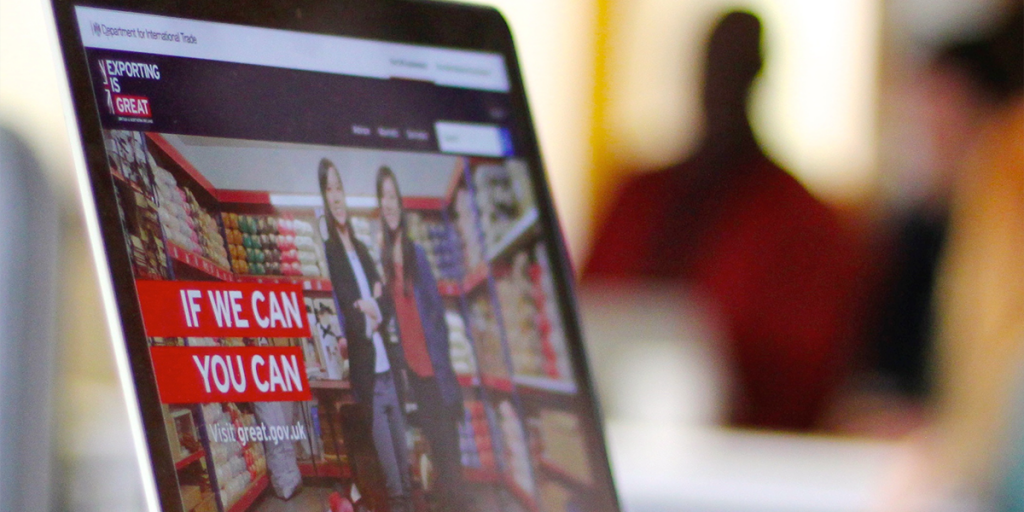
The DIT’s focus on inclusivity extends into its hiring practices. They pride themselves on being an environment where it’s possible for someone at the beginning of their career to join and grow as a specialist in their field. Each new team member can be paired up with a mentor, and asking questions and learning are encouraged. The involvement in wider government schemes, like digital apprenticeships, means that some of their positions are open to people changing careers, or still figuring out where their key skills lie, and not just people with a digital background. Check out this write-up from two of their cybersecurity apprentices about how they got into their positions (key line: “A background in IT is not necessary to start a career in cyber security in government and many routes lead to this exciting field.”)
“DIT is focused on growing tech talent. The learning opportunities and support I receive from my colleagues, coupled with an atmosphere in which questions are encouraged, make this a great place to start as a junior developer.”
Miriam, Full Stack Developer
The work of the department is supported by the wider government networks of experts, providing access to learning opportunities, idea exchanges and networking. But skilling up isn’t just limited to learning from colleagues, like many tech jobs that are adjacent to another industry, the DDaT teams at DIT are gifted the opportunity to learn much about their sector: “we effectively run a software house supplying the whole department. This means that our cross-disciplinary teams are involved in every statutory activity of this department. We live and breathe trade” says Chief Technical Architect Mateusz.
Make your mark
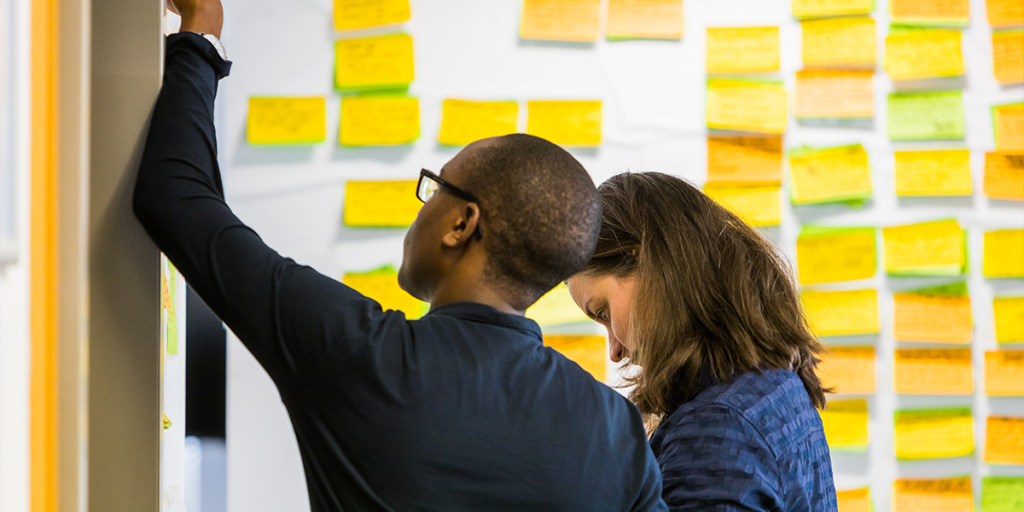
“As a product manager what appealed to me the most was the social and economic impact of the services I could work on. I’ve always been interested in trade as I studied economics and did my masters in International Economics. I found out that DIT was a great place to work in terms of agile ways of working and its culture.”
Sylvia, Product Manager
The work of the DDaT teams at DIT makes a difference to all UK businesses. By building effective digital services, data tools, services and technology they can have a positive effect on the economic wellbeing of the whole country.
The satisfaction from knowing the impact of their work is a driving force behind many in the tech teams at DIT. “When I joined the DDaT team in DIT, it had the feel of a ‘start-up’ and this mindset and culture remain intact as we’re growing. I don’t think many tech jobs out there can have such an impact on the economic wellbeing of a country” says Chief Technology Officer Dale.
DTI’s platforms are visited millions of times every year by their audience in the UK and over 100 countries internationally, and the tools they develop for the wider departmental staff to use are an essential part of their daily working lives. Combined with the global reach of their products is a social purpose, and it’s clear that this opportunity to have a genuine impact on the country they live in is a source of real job satisfaction, and a motivating factor for many of the team.
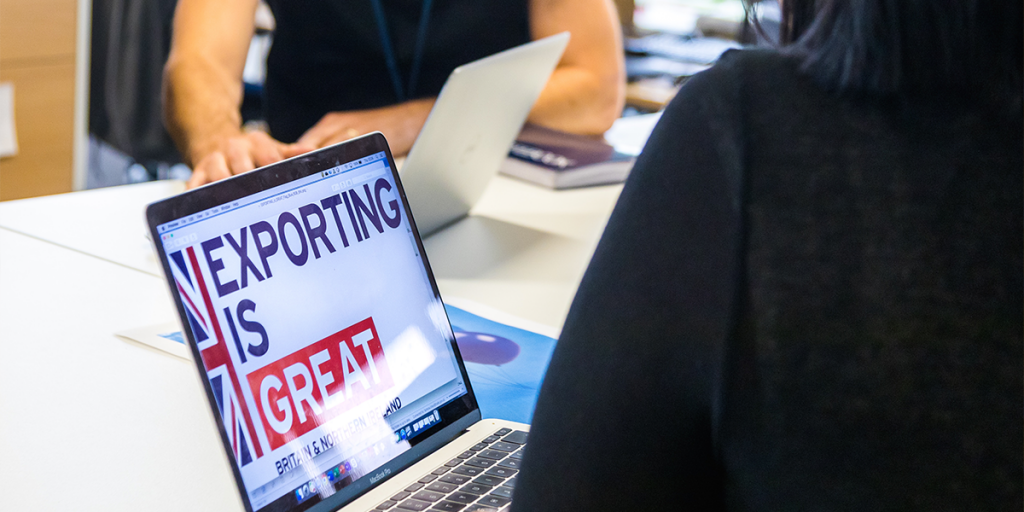
“The idea that by doing user-centered design brilliantly we can impact the economic prosperity of our country is one of the best things about working here.”
Simon, Chief Digital Officer
Job roles with the Department of International Trade